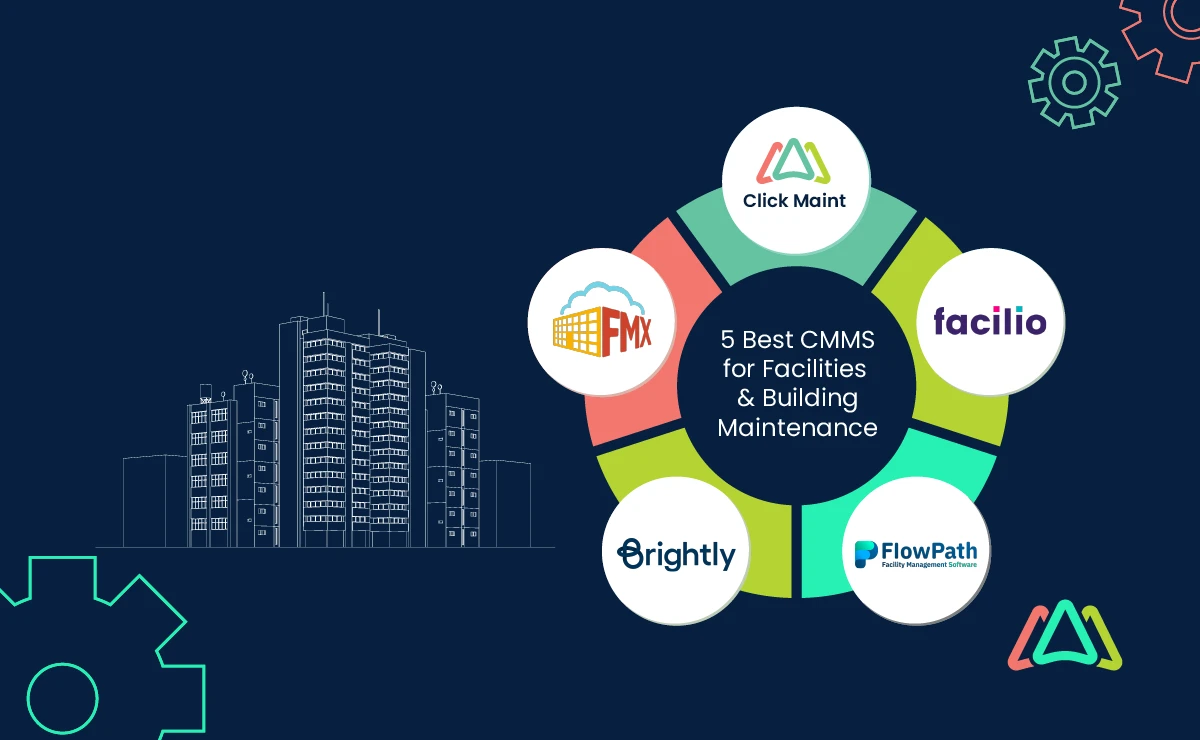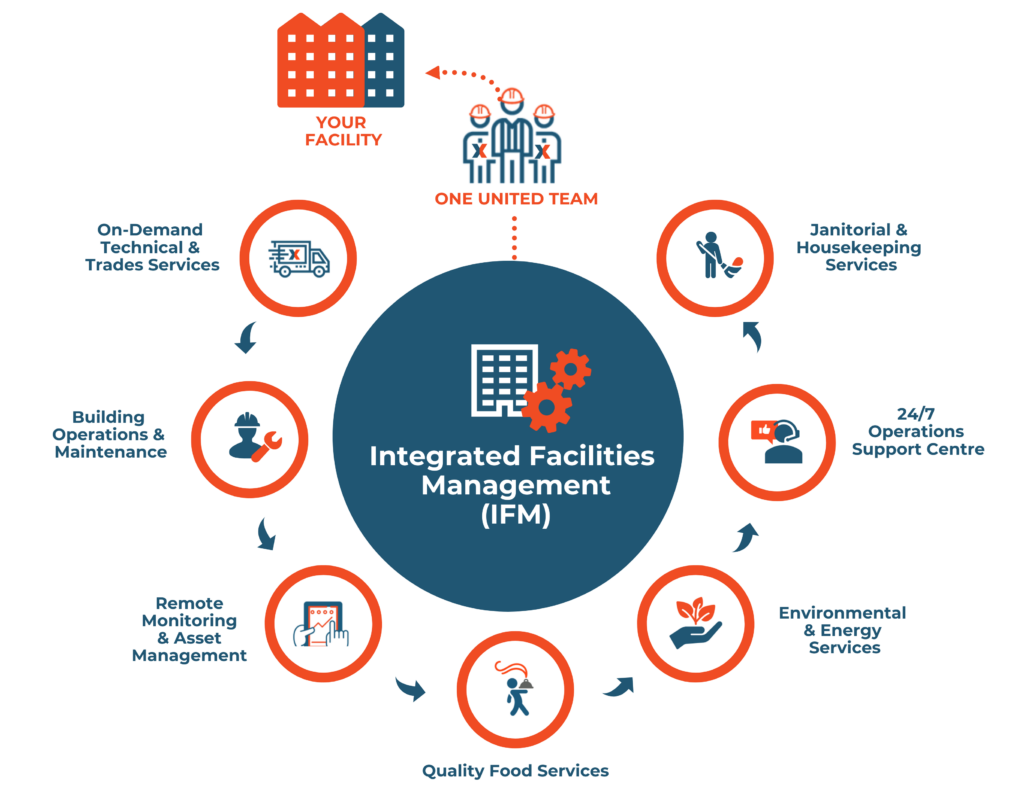Facility Management-- Streamlined Procedures and Price Financial Savings
Facility Management-- Streamlined Procedures and Price Financial Savings
Blog Article
Trick Fads Shaping the Future of Facility Administration in 2024
As we look ahead to 2024, the landscape of facility management is positioned for substantial improvement, driven by a number of essential patterns. The integration of clever structure innovations and a shift in the direction of data-driven decision-making assurance to improve operational performance while focusing on sustainability in practice.
Smart Structure Technologies

Smart structure modern technologies encompass a broad variety of systems, consisting of smart lights, heating and cooling controls, and protection systems. By incorporating these systems, center supervisors can check and readjust parameters in real-time, causing considerable decreases in power waste and operational expenses. As an example, smart sensing units can discover occupancy degrees and readjust lights and temperature level as necessary, making certain that power is just utilized when essential.
Furthermore, these technologies facilitate enhanced data collection, enabling organizations to track use patterns and recognize chances for additional enhancements. The application of smart structure modern technologies not only adds to sustainability goals yet likewise produces healthier job atmospheres that can improve worker productivity and satisfaction.
As we relocate into 2024, the fostering of wise building technologies will likely increase, showing a broader change towards even more smart, responsive, and lasting facility monitoring methods.
Data-Driven Decision Making
Significantly, organizations are leveraging data-driven choice making to enhance center administration practices. By using data analytics, center managers can obtain actionable understandings that considerably improve operational efficiency and resource allotment. The assimilation of innovative innovations, such as IoT sensing units and real-time monitoring systems, allows the collection of large quantities of data on building efficiency, tenancy prices, and power usage.
This riches of details enables center supervisors to determine fads, predict maintenance requirements, and proactively address problems before they intensify. For example, anticipating analytics can forecast tools failures, minimizing downtime and repair costs. Furthermore, information visualization devices assist in far better interaction amongst stakeholders, guaranteeing that notified choices are made collaboratively.
Moreover, data-driven methods improve calculated preparation by making it possible for center supervisors to analyze the efficiency of current practices and make informed options concerning financial investments in technology or facilities. As organizations progressively prioritize functional excellence, data-driven decision making is poised to become a foundation of effective center administration methods in 2024 and beyond. Eventually, the capacity to utilize data properly will empower companies to create extra reliable, efficient, and durable facilities.
Sustainability and Green Practices
The focus on data-driven choice making naturally aligns with the expanding emphasis on sustainability and eco-friendly techniques within facility monitoring. As organizations increasingly focus on environmental duty, facility supervisors are leveraging analytics to maximize resource usage, lower waste, and lessen carbon footprints. This tactical method enables the assimilation of energy-efficient systems, such as LED illumination, wise heating and cooling controls, and renewable power resources into center operations.
Moreover, the execution of lasting techniques prolongs past energy intake. Facility managers are promoting and taking on environmentally friendly materials recycling initiatives to produce a round economic climate within their facilities. This not just improves the ecological profile of the company but likewise fosters a society of sustainability among workers.
Conformity with environmental policies is an additional important aspect driving the adoption of environment-friendly practices. By making use of data analytics, center supervisors can keep track of conformity metrics and recognize areas for renovation, guaranteeing adherence to worldwide and neighborhood sustainability standards.
Hybrid Work Versions
A substantial change in the direction of hybrid work versions is improving the landscape of facility administration in 2024. This standard incorporates remote and in-office job, necessitating a reevaluation of area use, source allocation, and employee interaction approaches. Organizations are increasingly acknowledging the value of versatile work spaces that accommodate diverse needs and preferences.
Center managers have to adapt by applying flexible workplace styles that sustain joint efforts while supplying areas for focused job. This includes the link assimilation of innovation to promote seamless interaction and collaboration among in-office and remote workers. Smart building solutions, outfitted with sensing units and analytics, enable real-time surveillance of room use, allowing companies to optimize their environments successfully.
In addition, crossbreed job designs emphasize the demand for efficient facility management that prioritizes worker experience. This encompasses not just innovation and space layout yet additionally the advancement of plans that promote a well balanced work-life dynamic. As companies browse this shift, the function of facility monitoring ends up being critical in Get More Info developing an agile office that cultivates efficiency and drives business success. Fundamentally, the crossbreed job version is revolutionizing facility management, urging a proactive technique to fulfill the advancing demands of the labor force.
Enhanced Passenger Wellness
As companies accept hybrid work models, an enhanced emphasis on owner health is coming to be essential to facility monitoring approaches. Facility Management. This change acknowledges that a healthy and satisfied workforce directly influences efficiency and retention rates. Center managers are currently focusing on atmospheres that promote physical and mental health, integrating elements such as natural lights, biophilic design, and accessible wellness sources

Modern technology plays a vital duty in this advancement. Smart structure systems can check ecological variables and readjust setups in real-time, ensuring optimal convenience degrees - Facility Management. In addition, responses systems, such as tenancy sensing units and worker surveys, allow facility supervisors to continuously refine wellness initiatives based upon passenger requirements.

Verdict
In 2024, the future of facility management will certainly be significantly influenced by the assimilation of smart building modern technologies and data-driven decision-making, fostering boosted functional performance. Sustainability initiatives will certainly prioritize green techniques, while the development of crossbreed job models will require adaptable office layouts. Furthermore, an increased emphasis on owner wellness through sophisticated HVAC systems and biophilic style will certainly add to much healthier workplace. These trends jointly emphasize the developing landscape of center administration in feedback to modern obstacles and possibilities.
Facility managers are adopting environment-friendly products and promoting recycling initiatives to develop a round economic climate within their facilities.A significant shift in the direction of hybrid work models is improving the landscape of center administration in 2024.Furthermore, crossbreed job designs highlight the need for reliable facility management that focuses on employee experience.As companies welcome hybrid work models, an enhanced focus on occupant health is becoming essential to facility monitoring methods.In 2024, the future of facility monitoring will be dramatically affected by the integration of smart building technologies and data-driven decision-making, promoting improved look at here functional efficiency.
Report this page